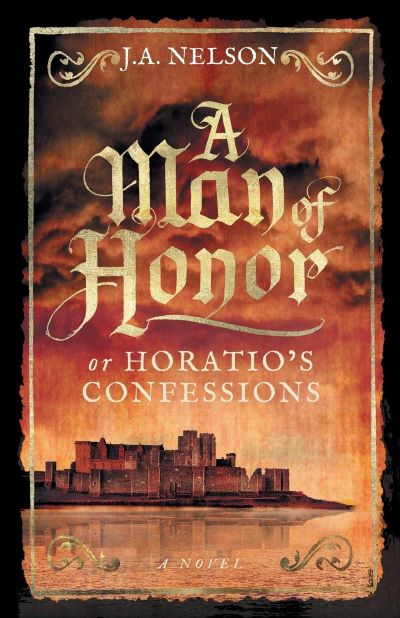review copy provided by T.S. Poetry Press via TLC Book Tours
Description from Goodreads:
Inspired by her heritage and research of the Irish Industrial School system, Henry’s auspicious debut chronicles a couple’s attempt to save their son from horrific institutions.
Marian McKeever and Ben Ellis are not typical young lovers in 1957 Dublin, Ireland; she’s Catholic and teaches at Zion School, and he’s Jewish and a budding journalist. The two plan to wed, but their families object to an interfaith marriage. And when Marian becomes pregnant, she doesn’t tell Ben. Coerced by Father Brennan (a Catholic priest who is also her uncle), Marian goes to Castleboro Mother Baby Home, an institution ruled by Sister Paulinas and Sister Agnes where “sins are purged” via abuse; i.e., pregnant girls are forced to mow the lawn by pulling grass on their hands and knees. Marian is told that her son, Adrian, will be adopted by an American family. The riveting storyline provides many surprises as it fast-forwards to 1967 where Marian and Ben are married and have a 10-year-old daughter. Marian’s painful secret emerges when she learns that her son was dumped in an abusive orphanage not far from her middle-class home and Sister Agnes is his legal guardian. Thus begins a labyrinthine journey through red tape as the couple fight to regain their firstborn child. Ultimately, 12-year-old Adrian is placed in the Surtane Industrial School for Boys, which is rife with brutality and sexual abuse at the hands of “Christian Brother Ryder.” Though unchecked church power abounds, this is not a religious stereotype or an indictment of faith. Hateful characters like Brother Ryder are balanced with compassionate ones, such as a timid nurse from the Mother Baby Home. Father Brennan deepens into a three-dimensional character who struggles to do what is right. Henry weaves multi layered themes of prejudice, corruption and redemption with an authentic voice and swift, seamless dialogue. Her prose is engaging, and light poetic touches add immediacy. For example, when Marian returned to Mother Baby Home after 11 years, she “opened the car door and stepped onto the gravel, wanting to quiet its crunch, like skeletons underneath her shoes.” Echoing the painful lessons of the Jewish Holocaust, Henry’s tale reveals what happens when good people remain silent.
A powerful saga of love and survival
My Take:
The Whipping Club is such an interesting and intriguing title for a book. Although the reason for the title doesn't become clear until later in the book, the title alone does make the reader pause and maybe even dread what is to come in the story. It certainly doesn't sound pleasant. I do love a book where the title alone makes me curious and cautious.
There are so many things I loved about The Whipping Club but also so very many things happen in the book that made me angry, and as a mother myself, outraged, offended and generally just sad. The main characters are wonderful. I particularly like Marian with her modern attitude, her strength, her temper, her tendency to blurt out exactly what she thinks and then has to deal with the consequences.
I loved that Ben and Marian stayed together through so much turmoil and acted as a balance to each other. Ben is much more calm and diplomatic and tries to keep Marian on an even keel. But later in the novel they seem to switch roles just when Marian has used up all her fire and is starting to lose faith, Ben takes up the torch exactly when needed to keep up the fight to protect their son, Adrian.
Adrian just tore my heart out. He is so hurt and damaged by the institutional setting he has grown up in. I loved how his sister Johanna, who has just found out about this older brother, becomes a staunch supporter of Adrian and loves him no matter what.
Despite problems caused by Adrian's emotional issues resulting from horrible mistreatment, misunderstandings with neighbors, childhood antics, and even deliberate attempts to undermine the effort to bring Adrian home, this family stays firm in their love and loyalty to each other.
The various institutions that Marian and Adrian were subjected to are absolutely horrendous and the people who worked there just made me so very angry. As the story unfolds, so too, do the examples of how the abuse is a cycle that has repeated itself over generations. Some of the adults running the institutions are themselves victims of the same type of abuse. While it doesn't excuse their behavior, it does highlight some important issues that should be examined and addressed.
While some of the topics in The Whipping Club are far from pleasant, the Ellis family stands out as a beacon of hope and love and strength. Even though the ending leaves it very much in doubt whether the family will be together and happy, I have hope. And, to be honest, I think the ending is perfect for this book.
There is one thing about The Whipping Club that just really stood out for me as a reader - I just loved the way that Deborah Henry gives us so many "intimate, inner thoughts of the characters"*. I felt like I really knew them and understood where they were coming from.
There are so many more things I would like to discuss, but I think that rather than give everything away, it would be better to simply say that I highly recommend this book. You will not regret reading it. It will make an impact on you.
When I finished the last page my reaction was just: Wow!
*quote from author via twitter conversation
About Deborah Henry
Deborah Henry attended American College in Paris and graduated cum laude from Boston University with a minor in French language and literature. She received her MFA at Fairfield University. She is an active member of The Academy of American Poets, a Board member of Cavankerry Press and a patron of the Irish Arts Center in New York.Curious about the duality of her own Jewish/Irish heritage, Henry was inspired to examine the territory of interfaith marriage and in so doing was led to the subject of the Irish Industrial School system. She has traveled to Ireland where she has done extensive research and interviews, including those with Mary Raftery (States of Fear documentary filmmaker and co-author of Suffer the Little Children) and Mike Milotte (award-winning journalist), as well as first-hand reports from the survivors of the Magdalene Laundries, Mother Baby Homes, Orphanages and the Industrial Schools.
Her first short story was published by The Copperfield Review, was a historical fiction finalist for Solander Magazine of The Historical Novel Society and was longlisted in the 2009/10 Fish Short Story Prize.
The Whipping Club is her first novel. She lives in Fairfield, Connecticut with her husband and their three children. She is currently at work on her next book.
Deborah Henry's Website









